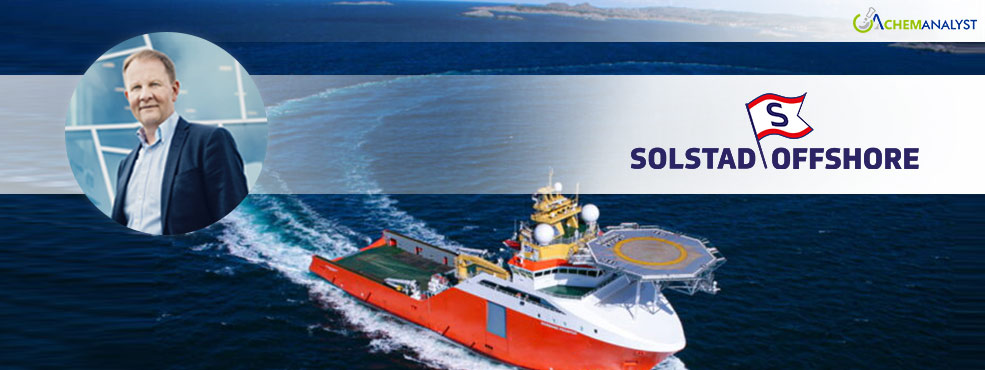Welcome To ChemAnalyst

Norwegian offshore vessel owner Solstad Offshore has taken another step in its decarbonization strategy by utilizing renewable biodiesel (HVO) to fuel its anchor handling tug supply (AHTS) vessel, the Normand Prosper, before it commenced an assignment off the coast of Norway. This move aligns with Solstad’s goal of reducing its environmental impact while offering renewable fuel options to clients during the transition toward zero-emission technologies.
The Normand Prosper, built in 2010, recently bunkered approximately 500 m³ of certified renewable biodiesel in Mandal, Southern Norway, before deploying for a mooring spread installation for a semi-submersible drilling rig in the Norwegian Sea. Solstad Offshore views this as a significant step toward cutting greenhouse gas (GHG) emissions, emphasizing that HVO is a “drop-in” fuel that can be used in existing vessel machinery without costly modifications. This initiative highlights the company’s efforts to decarbonize its operations and provide a greener alternative for the maritime industry during the ongoing transition to future zero-emission solutions.
Eco-1 Bioenergi facilitated the renewable biodiesel sourcing and bunkering process. Solstad's Sustainability Director, Tor Inge Dale, described the project as “strategically important,” reflecting the company’s commitment to significantly reducing GHG emissions and reinforcing its dedication to sustainable practices.
Renewable biodiesel, made from 100% renewable raw materials such as waste and residues, avoids using food crops in its production. Solstad estimates that by using this biodiesel, GHG emissions can be reduced by over 90% from well to wake, demonstrating a robust commitment to sustainability.
According to Lloyd’s Register, biodiesel presents several advantages. It poses a lower risk of environmental contamination, as it is biodegradable, and its functional equivalence to petroleum diesel means it can be used without major modifications to existing machinery. The established safety protocols for traditional diesel fuel can also be applied to biodiesel.
However, there are challenges associated with biodiesel. Large-scale production requires significant land and water resources, raising concerns about feedstock sustainability and competition from other sectors. Additionally, biodiesel has a lower energy value than petroleum, along with potential issues related to oxidation stability, microbial activity, and material compatibility when stored on ships.
Solstad’s latest step toward greener shipping comes after the firm joined forces with Cat Power Solutions, Pon Power, and Caterpillar Marine to enhance fuel efficiency across its offshore support vessels (OSVs) and explore methanol-powered solutions as part of its broader GHG reduction strategy. By integrating renewable fuels like biodiesel, Solstad continues to expand its efforts in sustainable shipping and energy efficiency.
We use cookies to deliver the best possible experience on our website. To learn more, visit our Privacy Policy. By continuing to use this site or by closing this box, you consent to our use of cookies. More info.
